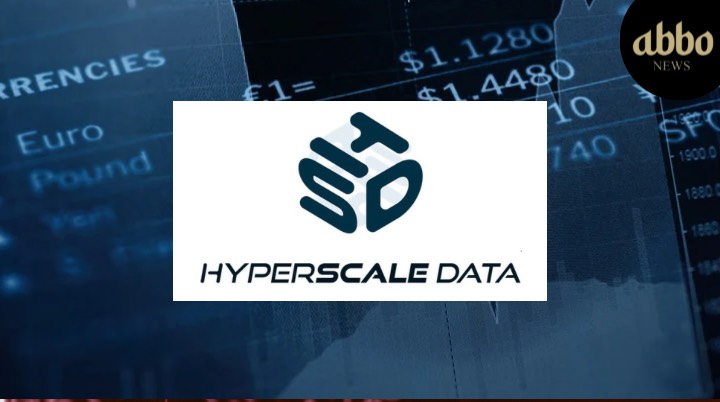Investors always have their eyes on big tech companies and are eager to witness how these tech giants will monetize their artificial intelligence investments.
When artificial intelligence was first being developed, machine learning models were developed mostly by academics.
The Stanford University AI Index Report indicates that this tendency has changed. The industry, which includes businesses like Microsoft, Google, and Apple, generated 51 noteworthy machine-learning models in 2023.
In this blog, we have analyzed and compared these AI stocks—MSFT v/S GOOGL—and made subtle suggestions for investors.
Microsoft: An Overview
Microsoft develops enterprise application platforms and software for consumer and business computers and distributes the Xbox game system and accessories. It also owns and operates LinkedIn, a business networking website.
As far as its AI initiatives are concerned, it is making products for its customer base. Some of the AI initiative products are Copilot and Microsoft Cloud.
- Copilot: Microsoft’s AI Assistant is the Copilot. Three pricing categories for the application range from free to $360 a year. In addition to creating visuals and summarizing text, Copilot can also respond to queries. Copilot can be integrated with Microsoft Office productivity suites, such as Word, Excel, and Designer for a fee.
- Microsoft Cloud: Microsoft Cloud is a collection of services and tools that help with corporate application development and maintenance, including AI and machine learning initiatives.
Financial Performace and Growth
Microsoft announced an increase in net income of 20%, diluted earnings per share (EPS) of 20%, and revenue of 17% in its third quarter fiscal year 2024 financial release. Cloud computing services mostly drove the topline growth. Azure and other cloud services rose 31%, while cloud expanded 23%.
After rising 57% in 2023, MSFT stock is up 24% this year.
Google: An Overview
Running Google Search, selling online advertising, managing the Google Play store, providing online storage and productivity tools, and overseeing the Google Cloud computing platform are all part of Alphabet, formerly Google. Google Pixel devices are designed and marketed by Google as well.
With its AI strategy, Google intends to compete with Nvidia (NVDA) and Advanced Micro Devices (AMD), as well as ChatGPT from OpenAI. Important AI projects
- Gemini: Google’s AI assistant, Gemini, can create visuals, summarize and analyze material, write prose, and answer inquiries. Gemini is the engine behind Google Search’s summary results and is also available directly to users for their searches. Gemini Advanced is a premium subscription tool that can handle more difficult activities like programming code.
- Project Astra: Currently, this project is only a prototype. The application can orally communicate findings about the surroundings after analyzing photos taken with a smartphone camera.
- Tensor processing unit (TPU): Later in 2024, Google will introduce a new, more potent TPU to its cloud users. The chip is positioned to compete with NVDA AI-capable chips.
Financial Performace and Growth
Google reported first-quarter 2024 sales growth of 16% in constant currency, net income growth of 57%, and diluted EPS growth of 61%. CEO Sundar Pichai highlighted the success of Cloud, YouTube, and Search.
Google stock saw a dip in the first two months of the year, but its sales increased to $84.7 billion, with 14% year-over-year growth in the company’s second quarter.
A Detailed Comparison:
In this section, we will compare the two stocks—Microsoft and Google—that belong to the list of the top ten AI stocks ( MSFT v/s GOOGL) based on their financial metrics, market share, growth potential, quarterly performance expectations, risks, and challenges.
-
Financial Metrics:
With a market capitalization of $3.07T, Microsoft has a P/E ratio of 35.32, a dividend yield of 0.70%, and an EPS TTM of $11.801.
Although industry-specific average P/E ratios differ, Google’s P/E is currently 24.02, which is rather over average. It has a dividend yield of 0.48% and EPS TTM of $7.04.
-
Market Share & Growth Potential
Grand View Research estimates the conversational AI business was worth $ 7.61 billion by 2022. Between 2023 and 2030, a compound annual growth rate (CAGR) of 23.6% is anticipated. By 2030, that amounts to $41.39 billion in revenue annually. If Copilot turns out to be an essential productivity tool for Microsoft Office customers, Microsoft should do well in the business market.
It’s still unclear if Google’s approach is worthwhile. Rather than developing novel, genuinely beneficial solutions, the corporation seems to be pushing itself into the AI field.
For instance, Google Search now directly competes with ChatGPT and all other AI assistants thanks to the addition of AI overviews. However, this bold step could harm the brand’s reputation unless people want Search to work like ChatGPT.
-
Quarterly Performance Expectations:
Google is anticipated to report Q1 earnings of $1.49 per share, up 27% from the comparable quarter of $1.17. Top-line sales for the top search engine companies are expected to rise 14% to $66.02 billion in Q1.
Notably, Google has reported 7.22% as an average earnings surprise, exceeding earnings forecasts for four consecutive quarters.
On the other hand, Microsoft has exceeded EPS predictions for six out of the past seven quarters and has reported average earnings surprises of 8.82% in the prior four quarters. For the third quarter of its current fiscal year, Microsoft is predicted to report earnings per share of $2.81, up 14% from the previous year.
Furthermore, Microsoft is expected to increase its Q3 revenue by 15% to $60.63 billion.
-
Risks & Challenges
Risk is associated with investing in AI stocks such as Microsoft and Google. Some of the notable ones are:
1. Ever-changing Expectations of Customers:
Customers’ expectations are constantly changing, which is a challenge for developers of AI goods and services. For instance, the excitement of generating power could give way to annoyance with AI’s unreliability.
The newest and best tools will be in high demand, potentially pushing back early advancements.
2. Requirements of High-Funds:
In the context of MSFT v/s GOOGL, the amount spent on computing to train Google’s Gemini Ultra and OpenAI’s GPT-4 was $191 million and $78 million, respectively. Businesses making these large investments do so with the expectation that these models won’t age out before they produce profits.
3. Uncertain Regulations:
Global concerns over data privacy and AI accuracy could lead to more stringent regulations. This would increase the development and operating expenses of AI software companies.
Which is a better bet- MSFT v/s GOOGL?
In the AI race, MSFT stock is a better long-term and short-term investment than AAPL or GOOGL stock. Through its software products and Microsoft Cloud, Microsoft has a natural distribution mechanism that reaches business and consumer clients.
Only Microsoft is anticipated to announce a short-term increase in earnings directly associated with AI. This increase will originate from the company’s cloud services. Like Microsoft, Google’s cloud business is expanding, albeit from a far smaller foundation.
Bottom Line
AI stocks can make you wealthy. You just need to make the right decision. With Microsoft and Google in the picture, you must consider various metrics to make a sound investment decision.
Reliable portals such as ABBO News can give you all the information and insights related to the stocks of your choice.













